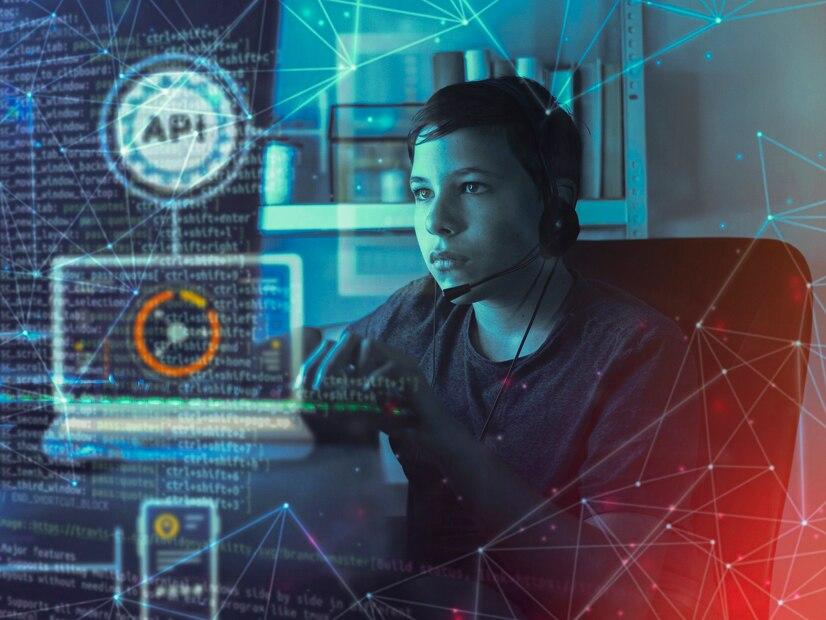How AI is Revolutionizing Game Development Services

Artificial Intelligence (AI) has emerged as a game-changer in multiple industries, and the gaming sector is no exception. AI is redefining how games are designed, developed, and played. From enhancing player experience to automating complex game development processes, AI has significantly streamlined operations for game developers worldwide. In the context of a mobile application development company, AI plays a critical role in improving efficiency, creativity, and player engagement. This article explores how AI is revolutionizing game development services, with a focus on mobile game development services and the impact on 3D game development companies.
AI in Game Design and Development
One of the primary ways AI is transforming game development is through intelligent design tools. AI-powered procedural generation helps developers create vast and immersive game worlds with minimal manual effort. This is particularly useful for 3D game development companies that need to build expansive and detailed environments.
1. Procedural Content Generation (PCG)
Procedural Content Generation (PCG) utilizes AI to create dynamic game elements, including:
-
Terrain and landscapes
-
Characters and NPCs (Non-Player Characters)
-
Game assets like weapons, buildings, and vehicles
-
Levels and missions
AI algorithms analyze player behavior and preferences, adjusting game environments in real time to enhance engagement. For example, AI-driven PCG enables the automatic generation of endless levels in games like Minecraft and No Man’s Sky.
2. Intelligent NPCs and Behavior Simulation
AI has drastically improved NPC behavior, making them more realistic and adaptive. AI-powered NPCs can:
-
Learn from player actions and adjust their responses accordingly.
-
Exhibit lifelike behavior patterns, increasing the immersion factor.
-
Improve game balance by dynamically adjusting difficulty levels.
For mobile game development services, intelligent NPCs contribute to engaging gaming experiences on limited hardware resources.
AI-Powered Game Testing and Debugging
Game testing is a critical phase in game development. AI-driven automation tools have significantly improved this process by:
-
Identifying bugs and glitches through pattern recognition.
-
Automating repetitive testing tasks, reducing manual effort.
-
Enhancing quality assurance by simulating human behavior and interactions.
AI-driven testing is a boon for a mobile application development company, as it ensures smooth and optimized gaming experiences across different mobile devices.
Personalized Gaming Experience
AI is playing a crucial role in delivering personalized gaming experiences by:
-
Analyzing player behavior and adapting game mechanics accordingly.
-
Recommending in-game purchases and content based on user preferences.
-
Dynamically adjusting difficulty levels to keep players engaged.
For 3D game development companies, AI helps in crafting more immersive experiences through real-time player data analysis.
AI and Game Physics Simulation
Realistic physics simulations are crucial for modern games, especially those in the 3D game development company sector. AI enables:
-
Realistic physics engines for lifelike movements and interactions.
-
Advanced destruction mechanics for realistic in-game damage.
-
Efficient simulation of water, fire, and weather effects.
Games like Red Dead Redemption 2 and Cyberpunk 2077 utilize AI-driven physics simulations for ultra-realistic gameplay.
AI in Mobile Game Development Services
For mobile game development services, AI brings a new level of efficiency and innovation. Some of the major impacts include:
-
Automated Character Animation: AI simplifies the animation process by predicting movements and gestures based on motion capture data.
-
AI-Driven Monetization Strategies: AI analyzes player data to optimize ad placements and in-game purchases.
-
Voice and Facial Recognition: Advanced AI enables facial recognition for character creation and voice assistants for interactive gameplay.
AI in Multiplayer Gaming and Cloud Gaming
Multiplayer gaming has benefited significantly from AI advancements. AI-powered matchmaking ensures balanced competition by analyzing player skills and preferences. Additionally, AI-driven anti-cheat mechanisms detect and prevent unfair gameplay practices.
Cloud gaming services also leverage AI for:
-
Optimized game streaming quality
-
Latency reduction
-
Efficient game data compression
This is particularly relevant for mobile application development companies offering cloud-based mobile gaming services.
Challenges and Ethical Considerations
Despite its advantages, AI in game development comes with challenges such as:
-
High Development Costs: Implementing AI-based systems can be expensive.
-
Ethical Concerns: AI-driven algorithms need to be transparent and unbiased.
-
Data Privacy: Player data collected for AI optimization must be secured.
Addressing these challenges ensures AI-driven gaming remains beneficial and sustainable.
Conclusion
AI is undoubtedly revolutionizing the game development industry by making games more intelligent, immersive, and efficient to develop. From procedural content generation to AI-driven testing and personalized experiences, AI is at the forefront of modern game development. For a mobile application development company, integrating AI enhances mobile gaming experiences, while mobile game development services benefit from AI-driven automation and optimization. Moreover, 3D game development companies leverage AI to create realistic and expansive game worlds.
As AI continues to evolve, its role in game development will only grow, leading to more advanced and immersive gaming experiences for players worldwide.
- Art
- Causes
- Crafts
- Dance
- Drinks
- Film
- Fitness
- Food
- Juegos
- Gardening
- Health
- Home
- Literature
- Music
- Networking
- Other
- Party
- Religion
- Shopping
- Sports
- Theater
- Wellness


